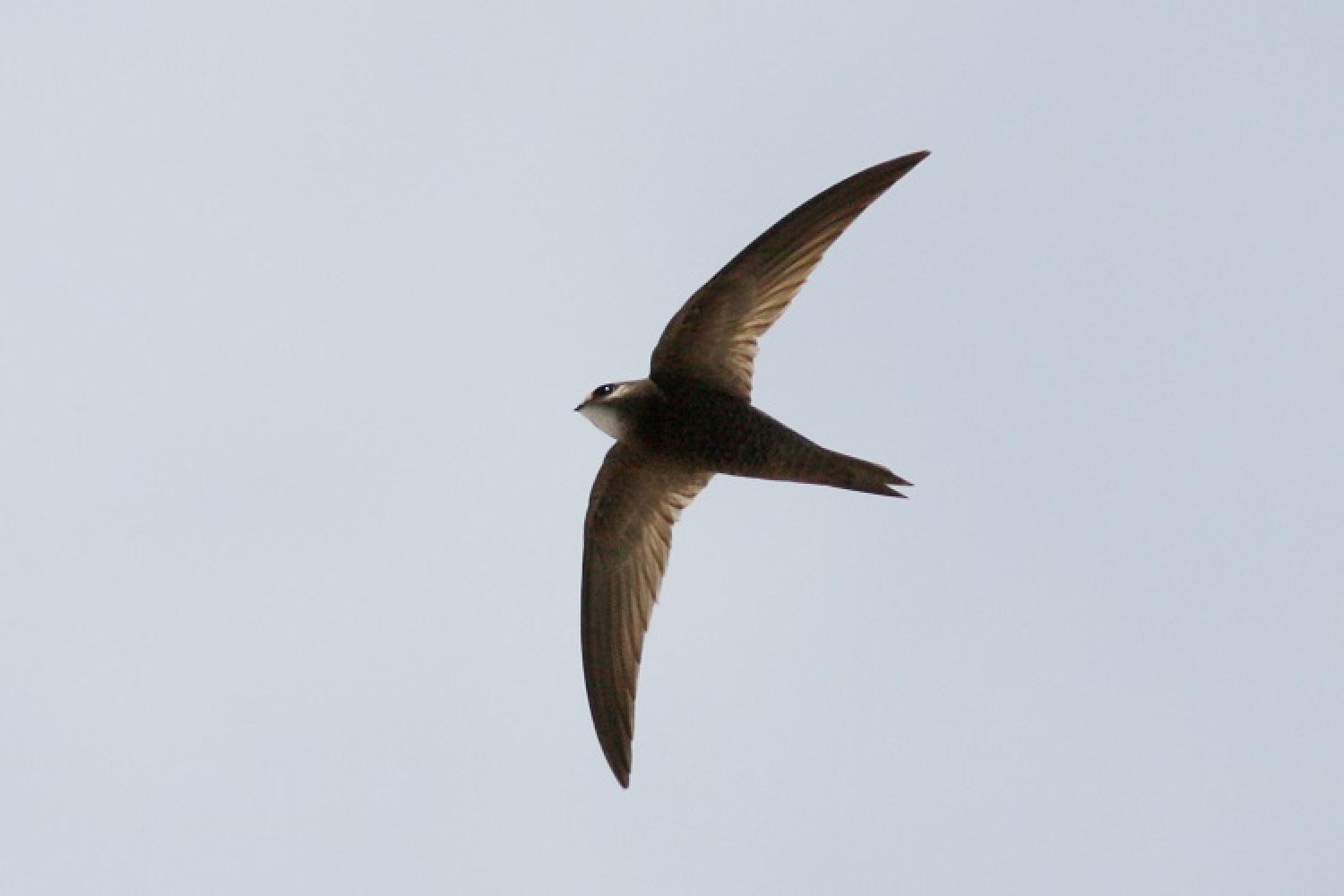Coming from Africa, the pallid swift, close to its cousin the Common swift in our towns, return each spring to bring the Calanques cliffs and islands alive with its noisy and twirling high altitude hunting.
It can be recognised by its typical sickle shape and its dark plumage. It leaves the archipelago in Autumn and spends winter in the Sahel desert.
Scientific name : Apus pallidus
 Did you know ?
Did you know ?
The pallid swift cannot land on the ground or on a branch. If it does, it cannot fly off again. It mainly lives in the air: it feeds, drinks and sleeps and can even mate whilst flying. It only lands next to its nest or sites inspected for nest-making.
 Conservation stake
Conservation stake
![]()

